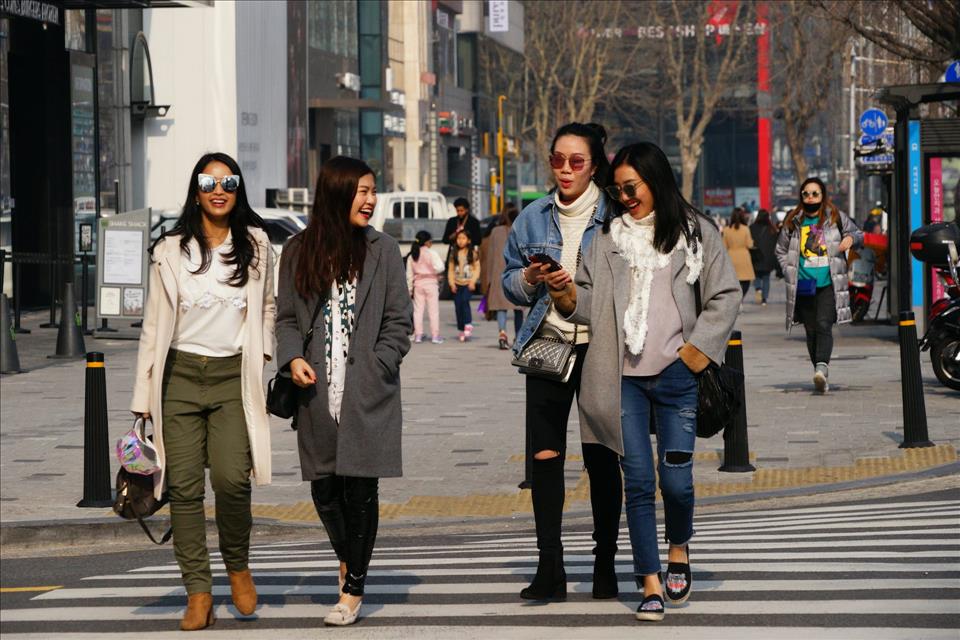(MENAFN- The Conversation) Donald Trump’s potential return to the White House is raising concerns regarding the future of women’s rights in the United States. With a well-documented history of misogyny, Trump has openly flaunted his influence in shaping the judiciary that led to the overturning of women’s constitutional rights to abortion in 2022. His recent political victory has predictably triggered alarm among many.
In the wake of November’s election, numerous American women have encouraged one another to take proactive measures such as deleting dating apps, enrolling in self-defense courses, and exploring birth control options. Additionally, some have highlighted the 4B movement, a radical feminist initiative that originated in South Korea, where some women are choosing to abstain from marriage, motherhood, romantic relationships, and sexual engagements with men.
This movement began in the 2010s as a response to the widespread misogyny that pervades South Korean society. It gained traction on social media after Trump’s election, particularly in the U.S., taking its name from its four core principles: bihon (no marriage), bichulsan (no childbirth), biyeonae (no dating), and bisex (no sex).
A History of Feminist Activism in South Korea
While feminist activism is not new in South Korea, it has gained significant momentum and support in the last decade. A pivotal moment occurred in 2016 when a woman was murdered in a public restroom near Seoul’s Gangnam subway station by a stranger who claimed he had felt “belittled by women” in the past. This tragic event catalyzed widespread public mourning and intensified the resistance to misogyny in the nation.
The #MeToo movement, which has globally highlighted issues of sexual harassment and abuse, found its footing in South Korea the following year, ignited by allegations of sexual misconduct against prominent figures such as filmmaker Kim Ki-duk and actor Cho Jae-hyeon.
Kim denied the allegations, claiming he only engaged in “consensual sexual relationships,” while Cho proclaimed his innocence, asserting that the reports did not reflect the truth. In January 2021, the Seoul Central District Court ruled in Cho’s favor.
Escalating Allegations in Politics
However, the allegations did not stop at the entertainment industry and spilled over into politics. In 2018, Ahn Hee-jung, the governor of South Chungcheong province, resigned after his secretary publicly accused him of repeated sexual assaults. He eventually received a three-and-a-half-year prison sentence for these crimes.
The former mayor of Seoul, Park Won-soon, faced a tragic fate in 2020, dying by apparent suicide just one day after his secretary filed a police complaint against him for sexual harassment. Following his death, over 500,000 people signed a petition urging the government to refrain from spending public funds on his state funeral.
Illicit filming has also become a significant concern in South Korea, predominantly affecting females. Reports indicated a fivefold increase in identified offenders for such crimes from 2011 to 2017. The former president, Moon Jae-in, noted in May 2024 that spy cameras had become commonplace. Often, these illicit videos are shared on adult websites, contributing to the psychological distress experienced by the victims, including severe depression and suicidal thoughts, as highlighted in a 2021 report by Human Rights Watch. It is this deep-rooted misogyny that has fueled the emergence of the 4B movement.
From Hopelessness to Resentment
The 4B movement took shape amid South Korea’s reckoning with gender violence and inequality. As a researcher focusing on online political participation and activism, I observe this movement as part of a broader societal shift in which many young South Koreans in their 20s and 30s feel compelled to forsake not only dating, marriage, and childbearing but also employment and homeownership. This general sense of despair reflects a broader disillusionment with their futures.
This despair can be traced back to the economic reforms following the 1997 Asian financial crisis, which increased labor market flexibility. As a result, many South Koreans face challenges in securing stable employment, leading increasing numbers of young people to abandon the job search altogether.
These feelings of hopelessness have been echoed in online gender conflicts. Many young men perceive themselves as victims of the progress of South Korea’s feminist movements, particularly following the abolition of the military service bonus point system in 1999 that benefitted men in public official recruitment exams.
This growing resentment has been weaponized by politicians, with South Korea’s now-suspended president, Yoon Suk Yeol, leveraging these sentiments to gain support among young male voters. Yoon’s campaign in 2022 included promises to eliminate the Ministry of Gender Equality and Family, accusing it of portraying men as “potential sex criminals.”
While the trend of feeling defeated may have specific nuances in South Korea, it resonates with many advanced industrialized societies grappling with rising inequality. As societal conflicts intensify amidst growing economic disparities, the struggle for women’s rights remains at the forefront of discourse both domestically and globally.
#MeToo protest march in Seoul, South Korea in August 2018. Socialtruant / Shutterstock
Legal Disclaimer:
MENAFN provides the information “as is” without any form of warranty. We do not accept responsibility or liability for the accuracy, content, images, videos, licenses, completeness, legality, or reliability of the information presented in this article. If you have any complaints or copyright issues related to this article, please contact the provider directly.


